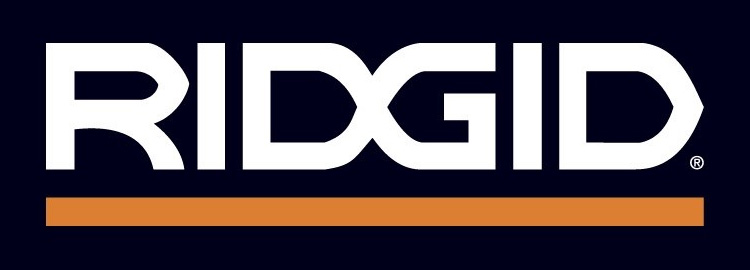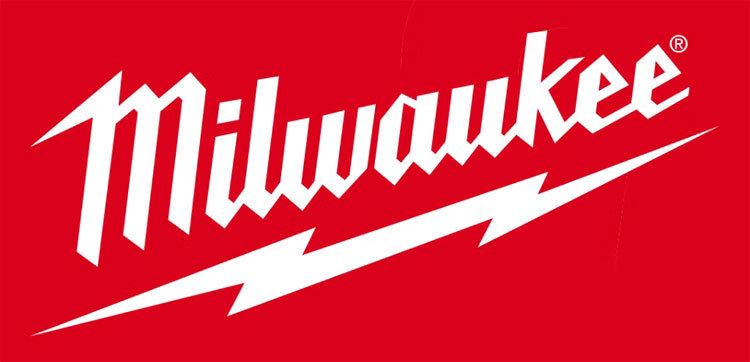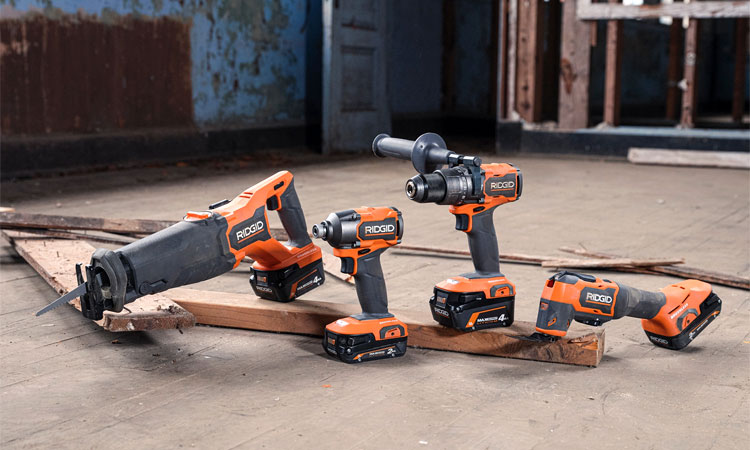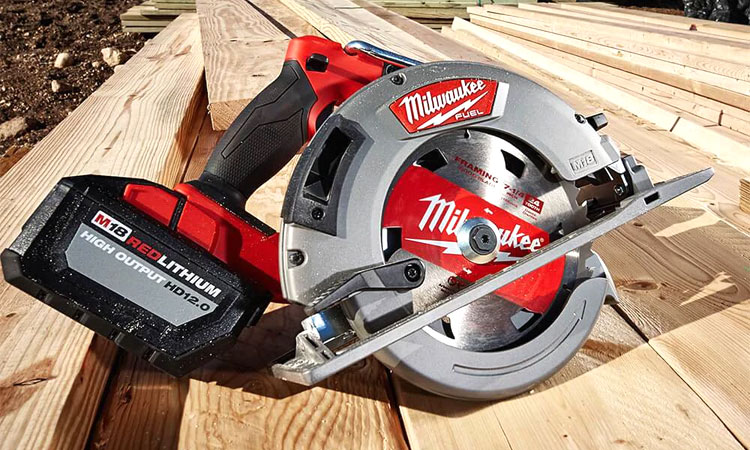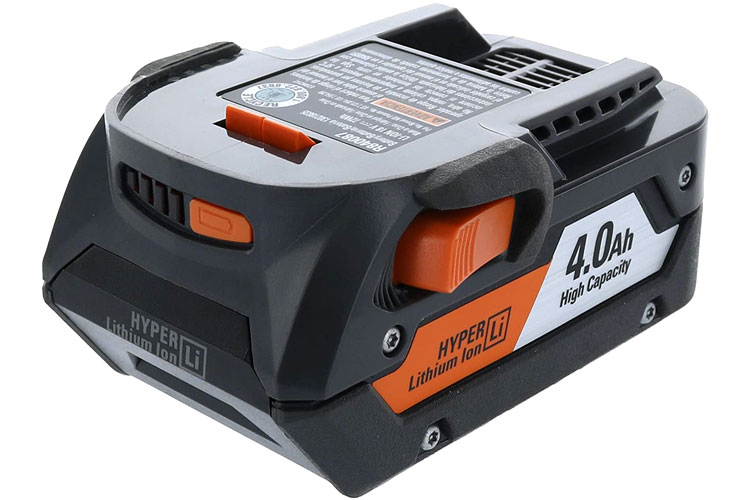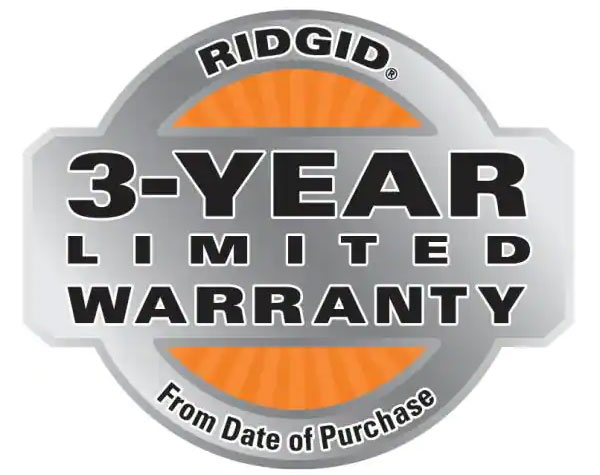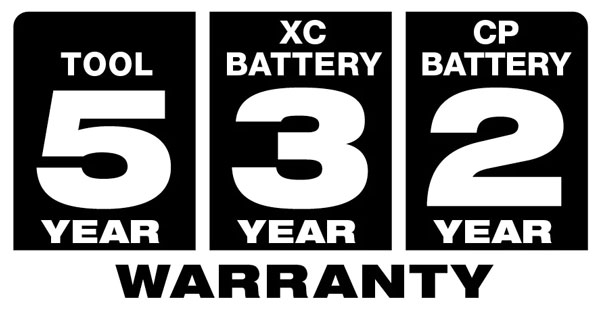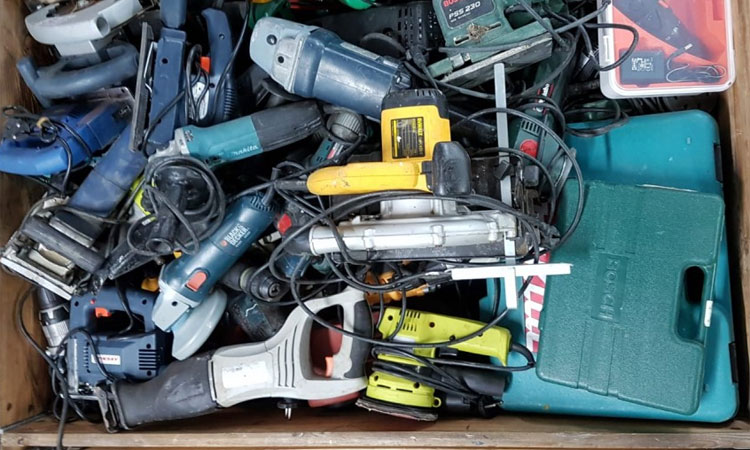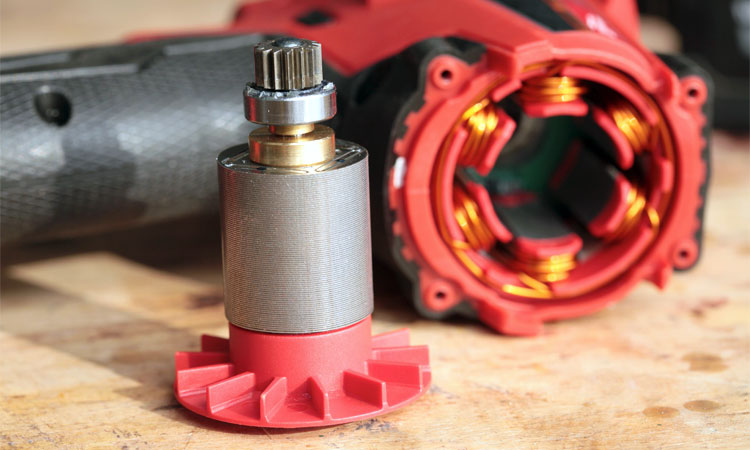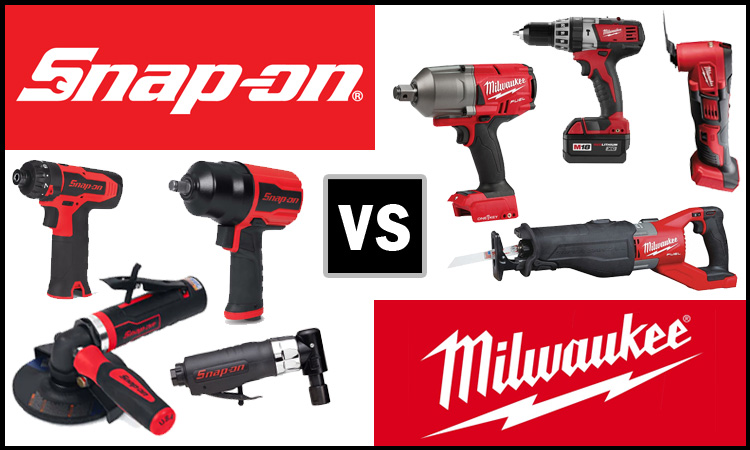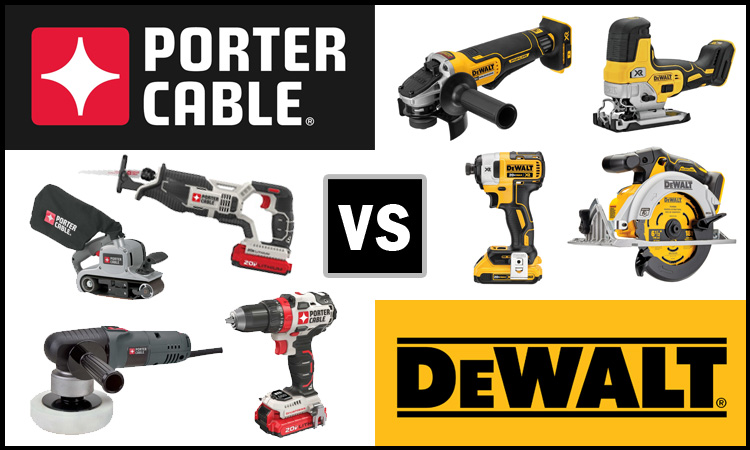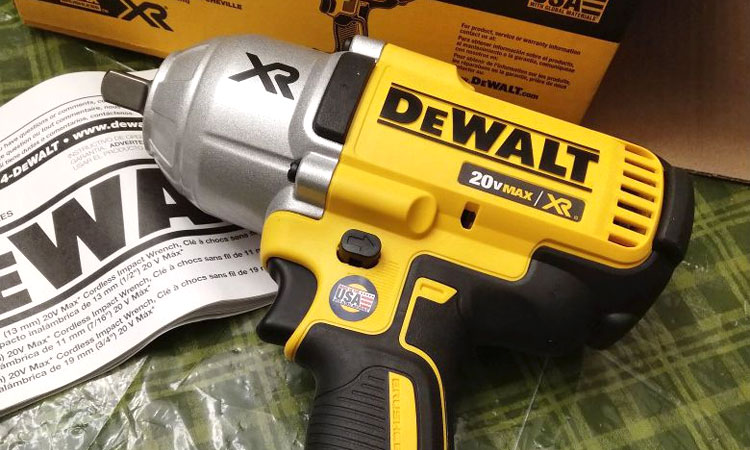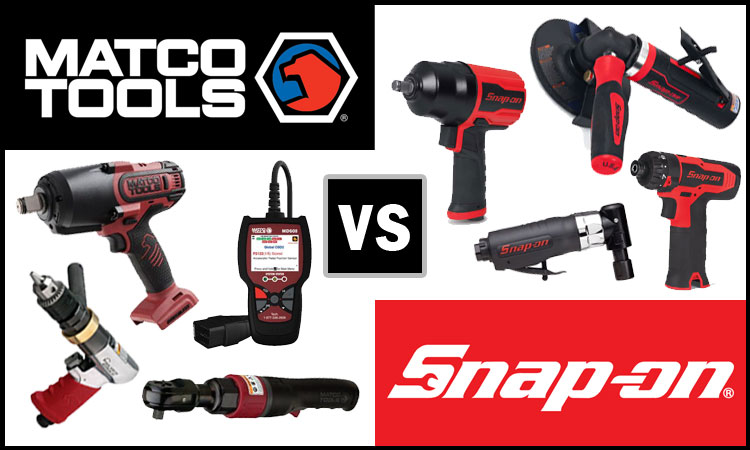Ridgid vs Milwaukee (Which is Better?)
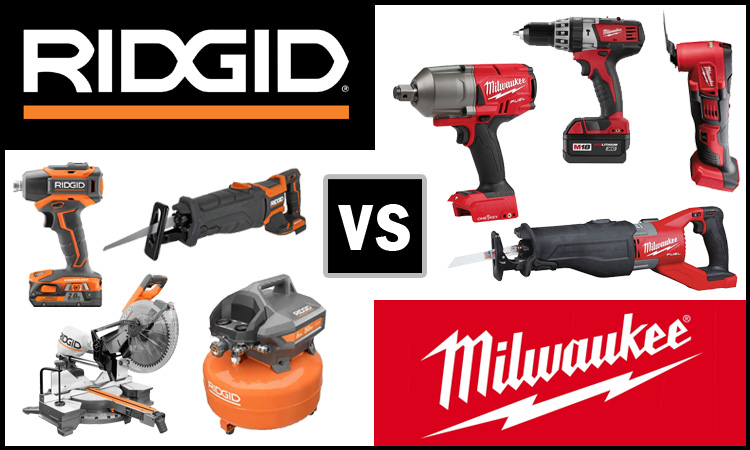
There has likely never been a better time to be an avid DIY enthusiast or tradesman. Quality power tools are plentiful, and are produced by numerous manufacturers. However, this often poses some level of difficulty, when determining which brand to find favor in.
Among all power tool brands, few are as often compared as Ridgid and Milwaukee. Both of these brands are well respected within the industry, and carry a proven legacy of quality. This, in turn, makes choosing between these two brands quite difficult.
For this reason, we have assembled the following guide, which is intended to provide a thorough side-by-side comparison between Ridgid and Milwaukee, regarding multiple characteristics of value.
Using this information, consumers should be better equipped to make an informed purchasing decision into what brand’s ecosystem they will invest into.
See Also: Ridgid vs DeWalt
History
Ridgid and Milwaukee both have a long and storied history in the tool world. They have each served as mainstays within the foreign and domestic tool industries for almost a 100 years.
The following is a brief summary of Ridgid and Milwaukee’s rise to mainstream popularity.
About Ridgid Tools
Carl Ingwer Sr. founded the Ridgid Tool Company almost 100 years ago. In 1923, the company was incorporated for the design of a new universal pipe wrench. Its headquarters was based in Elyria, Ohio.
Although it started with one wrench, it wasn’t long before Ridgid’s wrenches were joined by a line of plumbing and pipe work tools.
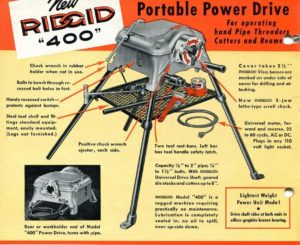
It was not until the late 1940s when Ridgid released its first power tool, the Ridgid 400 Portable Power Drive. This tool proved to save time and effort for tradesmen the world over by expediting the process of pipe threading. Over the next several decades, Ridgid refined and enhanced their Power Drive.
Ridgid Tools merged with well-known Emerson Electric in the 1960s, providing Ridgid with a broader market. Soon after the Kollman Company of Erie, Pennsylvania was acquired by Ridgid Tools, thus leading to an expansion into the portable drain cleaning market.
The 1990s saw Ridgid growing quickly with the manufacturing and marketing of new and innovative portable pipe tools, including threaders, cutters, and pipe crimpers. Ridgid finally joined the ranks of other tool companies in the world of battery-operated tools by implementing its own line in 2003. Their line was most prominently known for its portable drills and specialty impact drivers.
Recently, Ridgid has merged its line of pipe work and battery-operated products, releasing products such as the RE 6. This tool proves strong and versatile enough to cut wire, crimp lugs, and punch boxes, without the need for other tools.
Read Also: Ridgid vs Ryobi
About Milwaukee Tools
The history of Milwaukee Tools begins near the end of WWI which saw Henry Ford approaching A.H. Petersen, a tooling manufacturer, with a special request. He was seeking a lightweight, portable 1/4” drill and proposed that Petersen develop such a tool. Petersen fulfilled this request with the “Hole Shooter”, a hefty 5-pound drill containing a Westinghouse motor.
A.H. Petersen and A.F. Siebert later partnered together to establish the A.H Petersen Company. However, a plant fire in the early years of this company ultimately brought about financial ruin. In 1924, Siebert purchased the company’s remaining assets and the Milwaukee Electric Tool Corporation was born.
Milwaukee’s “Hole Shooter” was used extensively during WWII by the American armed forces in the construction of military aircraft.
Over the next few years, Milwaukee continued to produce new and versatile products like a new line of sanders and grinders and the first 1/2″ right-angle drill, which allowed plumbers and electricians to drill holes, even in tight places. Milwaukee is probably best known for its introduction of the revolutionary Sawzall reciprocating saw in 1951.
The 1970s saw change happening for the Milwaukee Tool Company when it was acquired by Amstar and with expansion into the South. Milwaukee moved outside the state of Wisconsin for the first time in 1974 with their new manufacturing plant in Jackson, Mississippi. Soon to follow were several other production facilities across the south.
Techtronic Industries Company now owns the Milwaukee Tool Company and employs approximately 1,000 workers worldwide. The company continues to build on its reputation with new and innovative power tools.
See Also: Milwaukee vs Ryobi
Manufacturing
Many consumers place substantial value upon a given company’s manufacturing practices. For this reason, we have outlined such points, as they pertain to both Ridgid and Milwaukee, allowing consumers to make an even more informed purchasing decision.
The following is a brief description of Ridgid and Milwaukee’s various manufacturing practices.
Where Are Ridgid Tools Made?
Elyria, Ohio is still the home to the headquarters for Ridgid Tools even though the company’s tools are manufactured both in China and the United States.
Most of Ridgid’s power tools are produced overseas, while the majority of the company’s Ridgid brand hand tools are still made in the USA.
Today, Techtronic Industries actually owns Ridgid Tools, and the majority of their power tools are for purchase only through Home Depot. Ironically, TTI is the same parent company that owns or manages many other premium power tool brands, such as Ryobi and Milwaukee.
See Also: Ridgid vs Makita (Which Brand is Better?)
Where Are Milwaukee Tools Made?
Brookfield, Wisconsin is the home to the Milwaukee Headquarters. Much like Ridgid, Milwaukee manufactures tools both domestically and internationally. The majority of Milwaukee’s US manufacturing and warehousing efforts take place in the following cities.
- Greenwood, Mississippi
- Mukwonago, Wisconsin
- Olive Branch, Mississippi
- Jackson, Mississippi
Besides its domestic operations, Milwaukee also produces many of its portable, battery-powered tools overseas. China and Europe are the primary locations for these foreign manufacturing plants, though it is possible that additional facilities exist elsewhere.
See Also: Milwaukee vs DeWalt
Product Line
Ridgid and Milwaukee have both strived to fulfill the needs of consumers, thereby offering comprehensive lines tools. In fact, both of these manufacturers have plenty to offer the average consumer from hand tools to premium battery-operated power tools
The following is a general overview of Ridgid and Milwaukee’s product portfolios.
Ridgid
Ridgid’s first foray into the power tool market came in 2003 when they first released their brand new line of battery-powered tools. Even though they haven’t kept up with some of the top-known tool companies, they have continued to expand their line of power tools over the last almost 20 years.
Currently, Ridgid’s best-known line is that of their 18V brushless portable power tools. This product line includes multiple variations of drills and heavy-duty impact drivers. Although Ridgid does not necessarily market the vast array of tools that some top-tier tool companies do, they still manufacture the tools that consumers rely on most.
Most recently, Ridgid has begun marketing a line of subcompact cordless power tools meant for the tradesman who sometimes is forced to work in tight, confining places. These tools are half the size of their counterparts in the regular line. These small workhorses still maintain the same 18V rating as the full-size versions.
To this day, Ridgid is perhaps still best known for manufacturing its premium pipe wrenches. However, Ridgid does produce a wide array of hand tools, corded tools, and of course, power tools.
Milwaukee
Milwaukee is a mainstay in the portable power tool market. Their tools serve both at home and professional needs, spanning niches from home improvement to automotive, to the hardcore job site. The availability of different power settings allows Milwaukee tools to be versatile enough for whatever job is required.
Perhaps the most popular of Milwaukee’s power tools is its M12 lineup. The compact and lightweight tools in this series make them ideal for the everyday DIYer, however, they are just as likely to be utilized by professional tradesmen.
Milwaukee’s popular M18 line of tools is perfect for those seeking additional power in their portable power tool. This extensive line of tools features more than 200 power tools and accessories ranging from saws, to drills, to impact guns.
Milwaukee’s M18 series also encompasses several workplace companions like work lights, radios, and vacuums, all of which are compatible with the M18 REDLITHIUM batteries.
In 2010, Milwaukee also began manufacturing and marketing their own signature line of hand tools, designed for the professional. The Milwaukee brand extends even farther than tools with the addition of a line of job site apparel, storage systems, and numerous accessories.
Technology
Ridgid and Milwaukee have both served as innovators within the power tool industry. A desire to meet the consumer’s ever increasing needs on both the homefront and job site has made it possible for Ridgid and Milwaukee to continue pushing this limit.
The following are several of Ridgid and Milwaukee’s most notable technological advances.
Ridgid
Compact Pipe-Tool Tech
For those plumbers or anyone else that finds themselves working on pipes in tightly enclosed spaces, Ridgid manufactures exactly the tool to fill your cramped space needs.
Ridgid’s full line of battery-powered, compact pipe tools, has you covered for use in a multitude of situations, from crimpers to cutters.
Hyper Octane Batteries
The invention of Ridgid’s Hyper Octane Batteries places complete power tool control at your fingertips. These batteries are Bluetooth compatible, which allows users to track the battery health of any tool using the Hyper Octane Battery.
One can also track any tool equipped with Hyper Octane Batteries, making it easier than ever to inventory valuable equipment.
Milwaukee
SHOCKWAVE Power Accessories
In recent years, Milwaukee introduced a line of specifically designed power tool accessories for impact drivers.
The SHOCKWAVE impact driver bits are manufactured from custom alloy which is heat-treated for longer bit life and features a specialized tip meant to increase wear resistance. These impact driver bits are known for extreme durability on even the most demanding job site.
REDLITHIUM Batteries
Milwaukee’s REDLITHIUM line of batteries is designed to last longer and work harder than any other power tool battery in existence today. Their case design, specialized circuitry, and chemistry produce more output even on the hardest job site.
In addition, Milwaukee offers a line of REDLITHIUM High Output batteries which is advertised to run cooler while providing 50 percent greater batteries of the same rating.
Read Also: Milwaukee vs Makita Tools
Warranty and Service
Great thought and consideration happens before a purchase is made. Tools are no exception to this rule. For this reason, we felt it necessary to compare the warranty policies offered by Ridgid and Milwaukee.
The following are several high points of Ridgid and Milwaukee’s customer service policies.
Ridgid
Ridgid power tools carry a 3-year limited warranty on them. This warranty covers the tool for defects in workmanship and material at no cost to the consumer.
Along with this warranty, Ridgid offers a lifetime service agreement. This agreement provides free replacement batteries, free parts, and service to the original owner of the tool if they registered the tool within the first 90 days of ownership.
However, it must be noted that the service agreement is only offered on tools that are purchased and registered through Home Depot.
Ridgid carries separate warranties on several of their other products, such as:
- Stationary power tools, 5 year limited warranty
- Generators, 3 year warranty
- Concrete and masonry hand tools, lifetime warranty
- Ridgid pumps, 3-5 years warranty
Milwaukee
Milwaukee warranties the majority of its portable power tools with a 5-year limited warranty. This policy stipulates that Milwaukee power tools will be free of defects in workmanship and materials, for 5-years from purchase and requires no prior registration.
However, this warranty policy does not protect against defects arising out of standard wear and tear or misuse. Any attempted tool alteration or repair by unlicensed individuals will also void this warranty, thus voiding any additional coverage.
There are a certain number of Milwaukee power tools that are not covered by the warranty policy outlined above. In such instances, the tool in question will come backed by an individual warranty policy, as specified by Milwaukee.
Some of the most prominent power tools warranties are:
- Outdoor Equipment, 3 years warranty
- Milwaukee Hand tools, Lifetime warranty
- REDLITHIUM batteries, 2 years warranty
- Cordless battery pack, Lifetime Warranty
- Air Nailer and Stapler, 5 years warranty
Ridgid vs Milwaukee: And The Winner Is…
Without a doubt, Ridgid and Milwaukee both produce some of the most durable, well-regarded power tools in the industry. However, at the end of the day, Milwaukee stands on a level all its own. While Ridgid is known to make some fine power tools for home or jobsite use, Milwaukee caters largely to industry professionals.
Additionally, Milwaukee’s product catalog is unparalleled in size and scope, dwarfing that of Ridgid. This is an important consideration to remember, especially considering the matter of battery interchangeability.
Above all else, Milwaukee is also known for its top-tier customer service, and wide-reaching warranty policy. In fact, the vast majority of the company’s power tools come backed by a first-in-class 5-year warranty, making the purchase of any Milwaukee power tool a sound investment.

